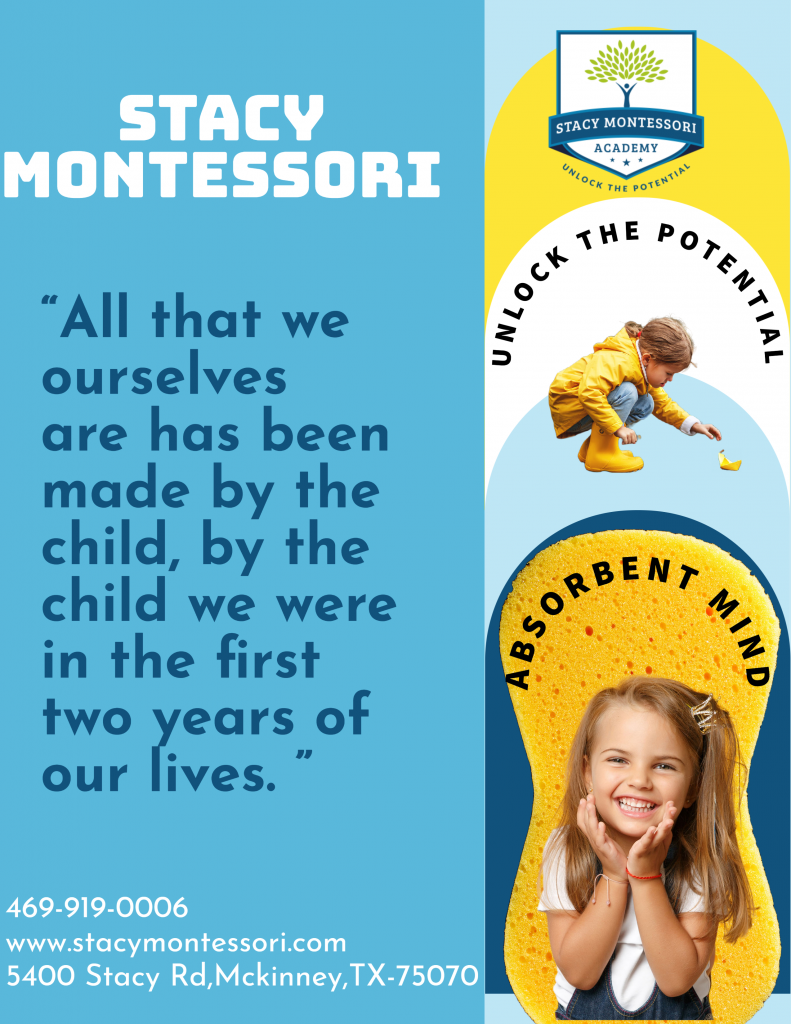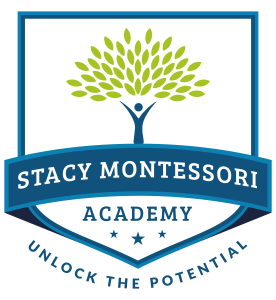Absorbent Mind
STACY MONTESSORI ACADEMY
“All that we ourselves are has been made by the child, by the child we were in the first two years of our lives”
Have you ever wondered how children learn their mother tongue? Without anyone teaching them vocabulary, grammar, or syntaxes, children pick up more than one language with ease. How do they do it so effortlessly?
This is possible through their ABSORBENT MINDS.
According to Maria Montessori, young children experience a period of intense mental activity that allows the child to “absorb”; i.e., learning via their environment without conscious effort.
A child’s absorbent mind is akin to a sponge soaking in stimuli from the environment. Whatever knowledge a child absorbs during their formative years will be done effortlessly; it will remain as the foundation of their personality.

This reason specifically is why the environment and teacher play an incredibly vital role in the development of a child.
Children absorb not only language, but the family traits, community, and culture. They learn everything by observing – how and what to eat, how to behave, and much more.
Although some of it is consciously taught, a great deal of it is simply absorbed through the power of a child’s mind.
According to Dr. Montessori, the absorbent mind can be divided into two stages: the Unconscious Stage and the Conscious Stage.
Unconscious stage (from 0-3 years of age): During this stage, the child absorbs unconsciously and unknowingly. Children learn to sit, stand, walk, and speak without conscious effort. A child during this period tends to mimic what they see. During this period, the child also acquires from the environment a language. He learns to think in that language. He absorbs the customs around him which then become a part of himself.
Conscious Stage ( from 3-6 years of age): The child still has a sponge-like mind that absorbs information easily; however, they now can consciously seek certain experiences. The child begins to show a strong desire to be independent, without any adult help. They want to become the master of their own mind, body, and environment. An adult who gives unnecessary help or promotes dependency then becomes an obstacle to the child.
The Montessori curriculum understands the power of the absorbent mind and views it as a wonderful gift. Thus, the learning triangle process was birthed; the environment, teacher and child all complement each other. The teacher thoughtfully prepares a classroom environment with materials and activities that entice her students to learn.
Please learn more by visiting Stacy Montessori.


